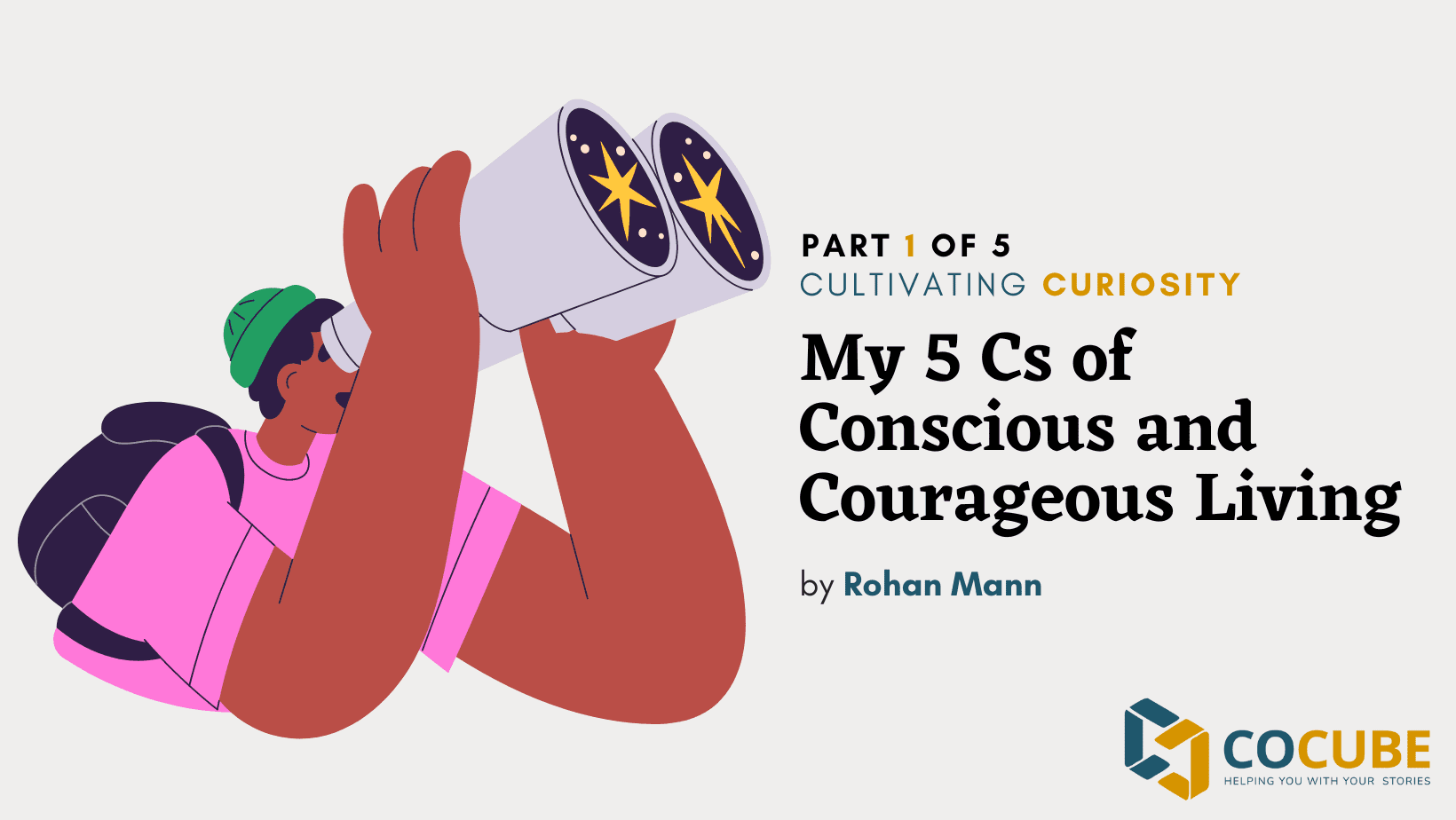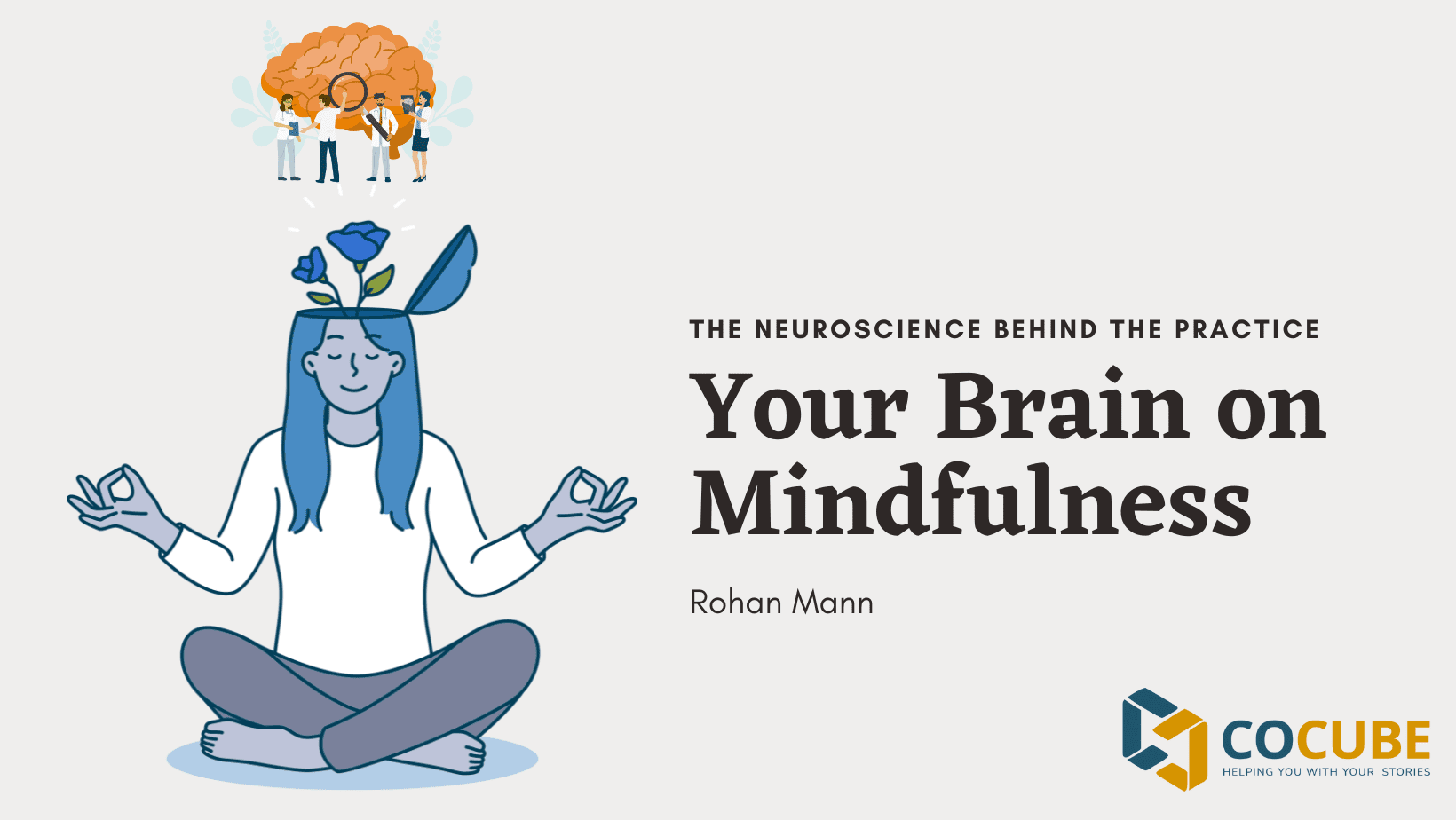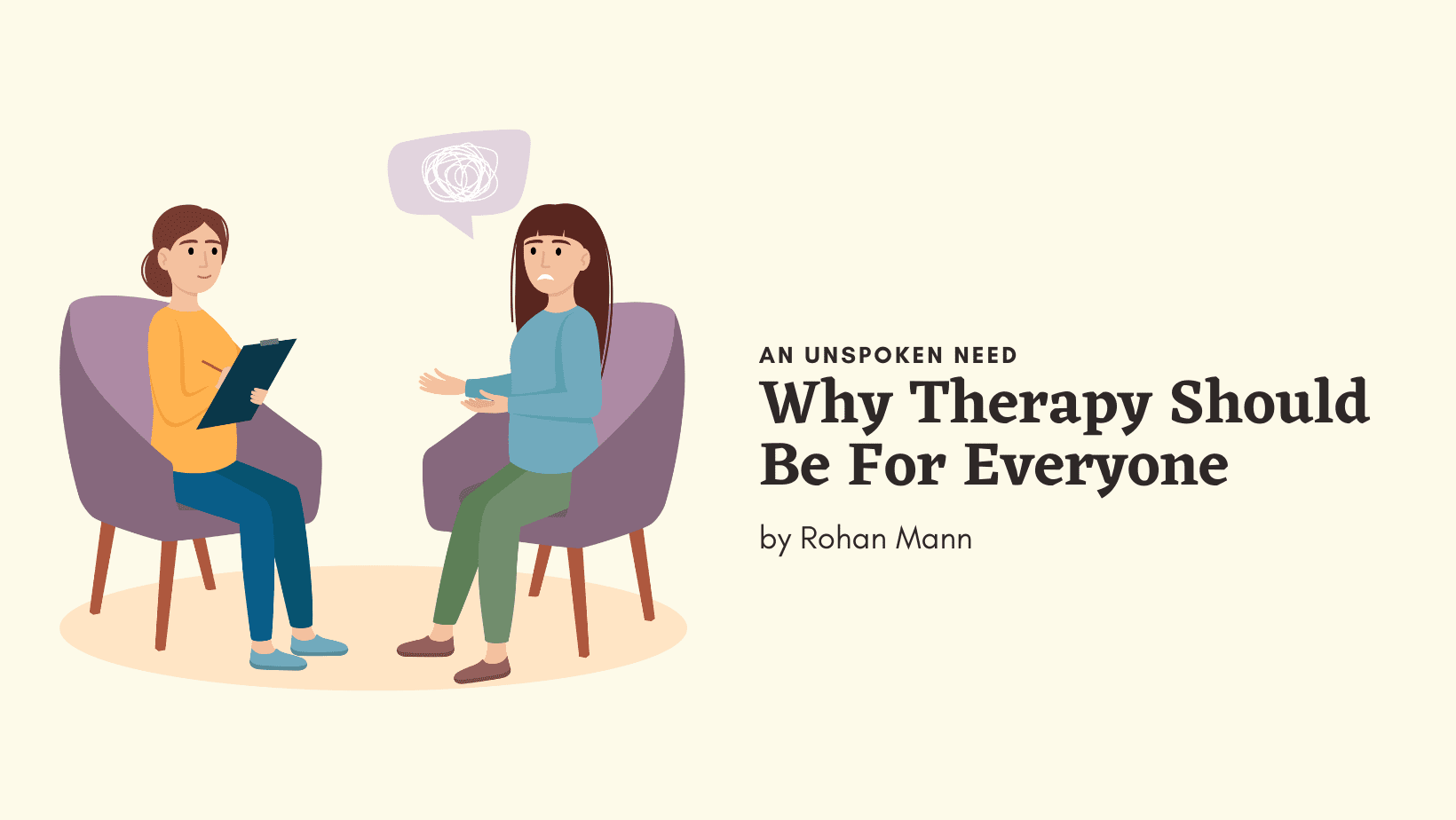Debunking the Myths: A Therapist’s Guide to Unwinding the Top 10 Misconceptions Around Therapy
In my practice as a therapist at CoCube, I have encountered a range of misconceptions about therapy, often discernible through clients’ initial reservations and uncertainties. These myths, subtle yet pervasive, act as barriers, preventing individuals from accessing the transformative potential of therapy. In addressing these misconceptions, we aim to clear the path to greater well-being, deeper understanding, and a more fulfilling life.
These myths are not just misunderstandings but deeply ingrained beliefs that can significantly impact one’s willingness to seek help. By challenging and clarifying these myths, we can illuminate a truth that is often obscured: therapy is a powerful tool for personal growth and emotional resilience. This blog post seeks to unravel these myths and highlight the real benefits of engaging in therapy, fostering a more informed and open approach to mental health support.
Myth #1: Therapy is for the Weak
This, perhaps, is the most pervasive myth of them all. We live in a society that glorifies self-reliance, where vulnerability is seen as a chink in the armor. But seeking therapy is not a sign of weakness; it’s a roar of strength. It takes courage to acknowledge your struggles, to reach out for help, and to embark on a journey of self-discovery. As Carl Jung aptly said, “The greatest and most important discovery of all time is that a man can change his own mental attitude.” Therapy is the map and compass for that very journey.
Take J, for instance. He came to me drowning in anxiety. “I should be able to handle this,” he kept saying. It was through therapy that J realized his strength wasn’t defined by his ability to shoulder everything alone, but by his willingness to acknowledge his needs and seek support. As he learned to prioritize his well-being, his anxiety lessened, his resilience grew, and he found a deeper sense of fulfillment in both his professional and personal life.
Myth #2: Talking About It Won’t Help
“Bottling things up” might seem like the safer option, but it’s like leaving a wound untreated, festering in the shadows. Sharing your burdens, especially in the confidential space shared with a therapist, is liberating. It allows you to process your emotions, gain clarity, and break free from the isolation that often accompanies mental health struggles.
S, an adolescent, came to me with issues of self-worth and a complex relationship with her mother. She believed that voicing her issues would only make it worse. But as we built a trusting relationship, S found the courage to open up. The act of speaking her truth became the first step towards healing, especially her relationship with her mother. As Dr. David Burns, renowned psychiatrist and author, writes in his book “Feeling Good,” “Expression of your feelings… is almost always therapeutic… bottling up your feelings is about the worst thing you can do.”
Myth #3: It’s All in Your Head, Keep It There
Mental health isn’t some shameful secret locked away in the mind. It’s a very real, very human experience, as universal as the beating of our hearts. Just like we wouldn’t hesitate to seek medical help for a physical ailment, we shouldn’t shy away from seeking support for our mental well-being.
I am reminded of T, a young woman who battled crippling grief and anxiety. The stigma surrounding mental health had convinced her that her struggles were her own shameful burden to bear. Therapy helped T understand that she wasn’t alone. In our sessions, she discovered that sharing her experiences not only reduced stigma but also inspired empathy in others. In fact, she inspired her sibling and her friend to also seek help for themselves. T’s journey also emphasizes the importance of breaking the silence around mental health.
Myth #4: Therapists Have All the Answers
I wish! We therapists are more like fellow travelers on your journey, guides equipped with knowledge and experience, but not oracles with pre-written scripts. Therapy is a collaborative effort, where you, the client, are the true expert on your own life. Our role is to listen, understand, offer tools and strategies, but ultimately, the choices, the changes, the healing – that’s all the client’s.
As Carl Rogers, my greatest influence in therapy, once said, “The curious paradox is that when I accept myself just as I am, then I can change.” Therapy is the space where you can accept yourself, flaws and all, and from that acceptance, blossom into the truest version of yourself.
Myth #5: Therapy is Only for Severe Mental Health Issues
Another common misconception is that therapy is exclusively for individuals with severe mental health disorders or crises. This belief often leads to the notion that therapy is unnecessary for ‘milder’ issues or everyday emotional challenges. However, this view overlooks the broad applicability and benefits of therapy for a range of concerns.
Therapy is not just a tool for crisis intervention; it is a resource for personal growth and emotional well-being that is accessible to anyone, regardless of the severity of their issues. People (including myself) seek therapy for a myriad of reasons, including managing daily stress, improving relationships, fostering self-awareness, and building coping strategies for life’s challenges.
For example, a few years ago I sought therapy for what I perceived as ‘minor’ anxiety issues. I believed that my concerns were not significant enough to warrant professional help. However, through therapy, I realized that addressing these ‘smaller’ issues proactively could prevent them from escalating and significantly improved my relationships and overall quality of life. My own case exemplifies the broad and preventive utility of therapy, extending beyond acute or severe mental health conditions.
Myth #6: It’s Too Expensive, I Can’t Afford It
Therapy, like any investment in your health, can seem daunting at first. But consider this: the cost of untreated mental health issues can be far greater, impacting your productivity, relationships, and overall quality of life. Thankfully, options abound! Many therapists offer sliding scales based on income, and in some countries, various insurance plans cover therapy sessions. Additionally, online therapy platforms have made access to mental health support more affordable and convenient than ever before.
Imagine M, a single mother working multiple jobs to make ends meet. The idea of therapy feels like a luxury she can’t afford. Yet, the constant worry and anxiety begin taking a toll on her health and her ability to care for her children. Through a local community mental health program, M finds a therapist who offers affordable sessions on a sliding scale. Therapy becomes her lifeline, a space where she can process her burdens, learn coping mechanisms, and find the strength to be the best mother she could be.
At CoCube, I’m committed to providing highly competitive market rates to make therapy accessible to a broader audience. By conducting sessions primarily online, I save on real estate costs, a saving that I pass directly to my clients in the form of lower fees. This approach not only makes therapy more affordable but also more convenient, allowing clients to receive support from the comfort of their own homes. Additionally, I offer specialized package deals and adjusted rates for students, unemployed individuals, low-income earners, and single parents. Recognizing the varying economic realities across different countries, I also provide market-specific rates, particularly for clients in developing nations. For detailed information on my pricing structure and to explore options that suit your financial situation, I invite you to visit the CoCube pricing page here.
Myth #7: It’s All Just Talking, It Won’t Actually Work
While talking is indeed a cornerstone of therapy, it’s far from the only tool in the toolbox. Therapists utilize a variety of evidence-based approaches, from cognitive-behavioral therapy (CBT) to mindfulness techniques and even creative expressions like art therapy. Each approach is tailored to the individual’s needs and preferences, ensuring a personalized and effective journey towards healing.
I am reminded of F, a young professional struggling with depression and lack of focus. He came to me skeptical, convinced that simply talking wouldn’t make a difference. But as we explored CBT techniques, practiced mindfulness exercises, and learned to identify and challenge negative thought patterns, F found his grip on darkness loosening. The “just talking” became a springboard for action, a process of actively rewiring his thoughts and behaviors, ultimately leading him towards a brighter future.
Myth #8: I Have to Tell Them Everything, Even the Embarrassing Stuff
This fear is understandable, but therapy thrives on honesty, not perfection. You are in control of what you share, and a skilled therapist will create a safe and supportive space where you can feel comfortable revealing as much or as little as you feel ready to. Remember, true healing can only occur when we shed the masks and embrace our vulnerabilities.
As Brené Brown, the renowned vulnerability researcher, reminds us, “Vulnerability is not weakness; it is our most authentic strength.” Therapy offers a haven where you can shed those masks, share your vulnerabilities without judgment, and discover the strength and resilience that lies beneath.
Myth #9: Once I Start, I’ll Have to Go Forever
Therapy is a journey, not a destination. Some people find significant improvement after just a few sessions, while others may choose to engage in longer-term therapy as part of their ongoing commitment to personal growth. There’s no one-size-fits-all approach. The journey is yours to define, and your therapist is there to guide you along the way, supporting you as you move towards your goals.
SJ, a young woman hesitant about starting therapy, approached me last year. The idea of long-term commitment felt daunting. We agreed to try an initial block of sessions, reviewing progress at each step. As SJ experienced the relief of open communication and learned practical coping mechanisms, her initial anxiety faded. By the end of the agreed-upon sessions, she felt empowered and equipped to manage her challenges independently. Therapy had given her the tools she needed to navigate life’s ups and downs with greater confidence.
Myth #10: It’s just for crazy people.
This harmful stereotype of therapy just being for the ‘crazy’ perpetuates the stigma and discourages countless individuals from seeking the help they deserve. Mental health challenges affect everyone, regardless of background, identity, or circumstance. From athletes to artists, CEOs to stay-at-home parents, millions of people benefit from therapy’s transformative power. Fun fact: It is a widely acknowledged best practice within the industry for therapists to engage in therapy themselves.
Take TB for instance, a successful marketing professional on the surface, drowning in crippling anxiety and self-doubt. The fear of being labeled “crazy” had kept her from seeking help for years. When she finally made the courageous decision to enter therapy with me, she discovered how common seeking help is. And just like her, there are many others navigating various mental health challenges. This realization shattered the myth, replacing it with empathy, understanding, and support. As TB’s anxiety lessened and her self-confidence grew, she began to thrive not just in her professional life, but in other aspects of her being.
Conclusion
As we have navigated through these ten myths, it becomes increasingly clear how misconceptions can form formidable barriers to seeking mental health support. These myths not only obscure the true nature of therapy but also hinder individuals from embracing a journey that could profoundly impact their lives.
Therapy, as we have seen, is not a realm reserved for a select few. It is a space of growth, healing, and discovery, open to anyone who seeks to understand themselves better and improve their quality of life. By challenging these myths, we pave the way for a more accepting and compassionate perspective towards mental health.
If you find yourself reflecting on your own perceptions of therapy, or if any of these myths have resonated with your experiences, consider this an invitation to explore further. Whether you are facing immediate challenges, seeking personal growth, or simply curious about what therapy can offer, know that the door is open.
At CoCube, I understand that taking the first step towards therapy can be daunting. I am here to guide and support you on this journey with empathy, expertise, and a commitment to your well-being. If you feel ready to start unraveling your own myths and embarking on a path of self-discovery and growth, I invite you to take the first step towards breaking down these barriers and discovering the benefits of therapy for yourself.
Remember, seeking therapy is not a sign of weakness, but a profound act of courage and self-care. Your journey towards a more fulfilling life could start today. Let’s take that first step together. Click here to set up a free 30 minute introductory session with me.







